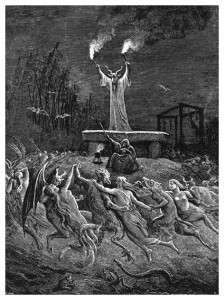Writing in the Guardian, Nick Cohen, with more grim news about the state of multiculturalist Britain:
Extremists are menacing the career and life of a Liberal Democrat politician and respectable society hardly considers these authentically scandalous threats to be a scandal at all. The scandal, in short, is that there is no scandal.
The reasons for the attacks on Maajid Nawaz are so bland, it makes me yearn to live in a grown-up country where I could shrug them off. But we don’t live in a grown-up country and I had better explain. The BBC asked the executive director of the Quilliam Foundation, an anti-extremist thinktank, on to a discussion show. Two atheist members of the audience wore T-shirts showing Jesus saying: “Hey” and Muhammad saying: “How ya doing?” I beg you to keep the innocuous nature of the cartoon at the front of your mind as we descend into a modern Bedlam.
The BBC decided that extreme Wahhabi and Salafi Muslims, who would ban all images of Muhammad, represented all Muslims. It ordered its producers not to show the offending T-shirts.
A few days ago Theotory blogger Cranmer weighed in on just this point:
Setting aside the irrefutable historic fact that Shia Muslims have a centuries-old tradition of depicting Mohammed, and this sort of strict censorship being principally a Sunni assertion of belief (including the malignant Wahhabi-Salafi strain), it is surely not for the state broadcaster to take a dogmatic view of the deeply-held sensitivities of one religious denomination, or to impose a moral view of religious blasphemy when Parliament has abolished the concept.
Quite.
Back to Cohen:
Nawaz left the studio in some disgust. He tweeted the cartoon of Jesus saying: “Hey” and Muhammad saying: “How ya doing?” and added: “This is not offensive & I’m sure God is greater than to feel threatened by it.” God may not have felt threatened, but his supporters did. A Liberal Democrat activist called Muhammad Shafiq took it upon himself to organise a national and international campaign against Nawaz. At the time we went to press, about 20,000 people had signed Shafiq’s petition to Nick Clegg, saying that the tweet had caused an “extreme amount of insult, hurt and anguish”. The Lib Dems must stop Nawaz standing as their candidate in Hampstead and Kilburn at the next general election, they demanded. Nawaz told his critics he had merely said that he did not think the BBC should censor a mild cartoon. He then went to the core of what is wrong with extremist religion and Britain’s thoughtless multiculturalism which, in the name of “diversity”, spatchcock people into ethnic and religious blocks that deny their individuality. If you want to ban inoffensive images of the prophet, Nawaz said, then I am sorry, I am not that type of literalist Muslim.
In other words, neither “community leaders” nor multicultural bureaucrats could talk of “the Muslim community” whose taboos must be observed. There were many “Muslim communities” and ex-Muslims, too, and they should be free to argue without fear.
As for the “Liberal Democrat” activist objecting to Nawaz:
…Shafiq is not your standard Liberal Democrat. He is in charge of the Ramadhan Foundation, which has hosted speakers whose attitudes towards gay people and Jews are anything but liberal.
The keeper (allegedly) of Britain’s liberal flame (and David Cameron’s partner in coalition government) has, it seems, ‘evolved’, and it will be interesting to see how the Liberal Democrat leader Nick Clegg responds. To their credit, Nawaz’s local party branch, at least, is standing behind him.









